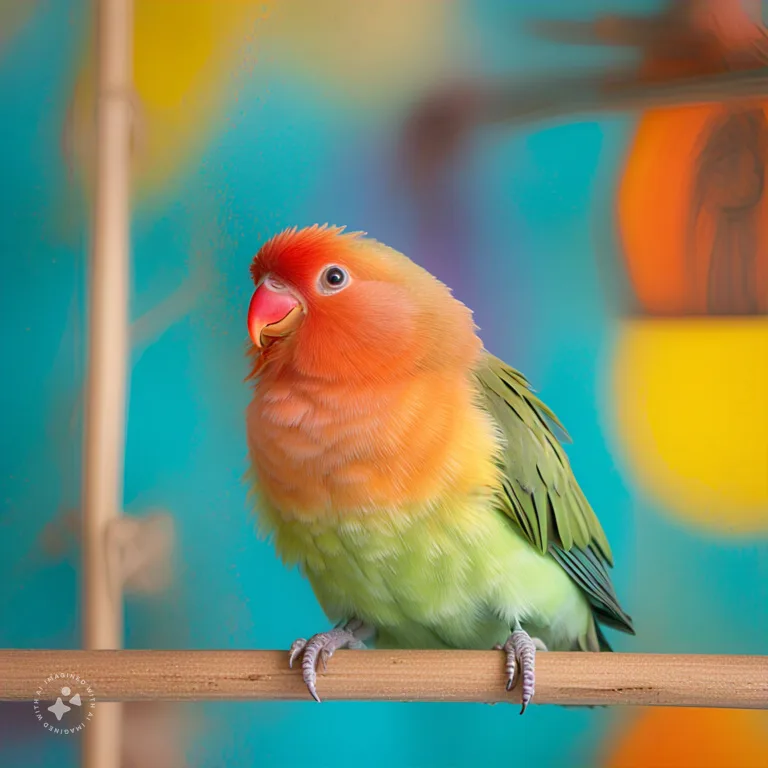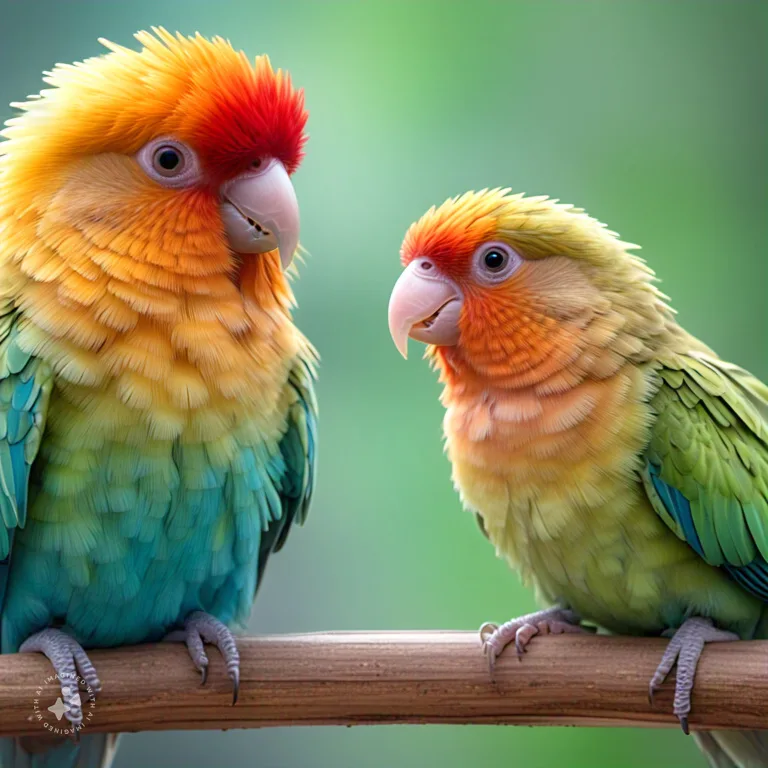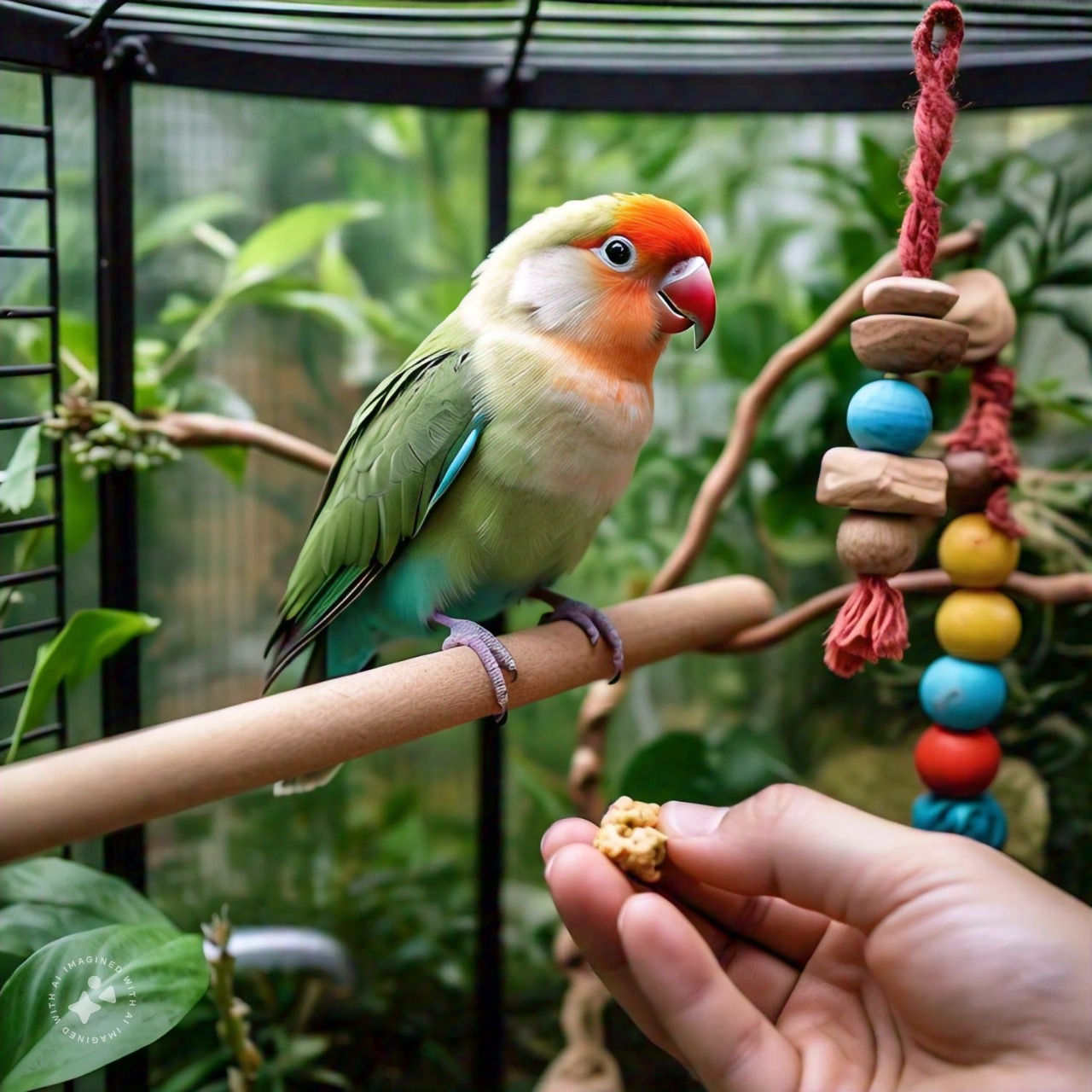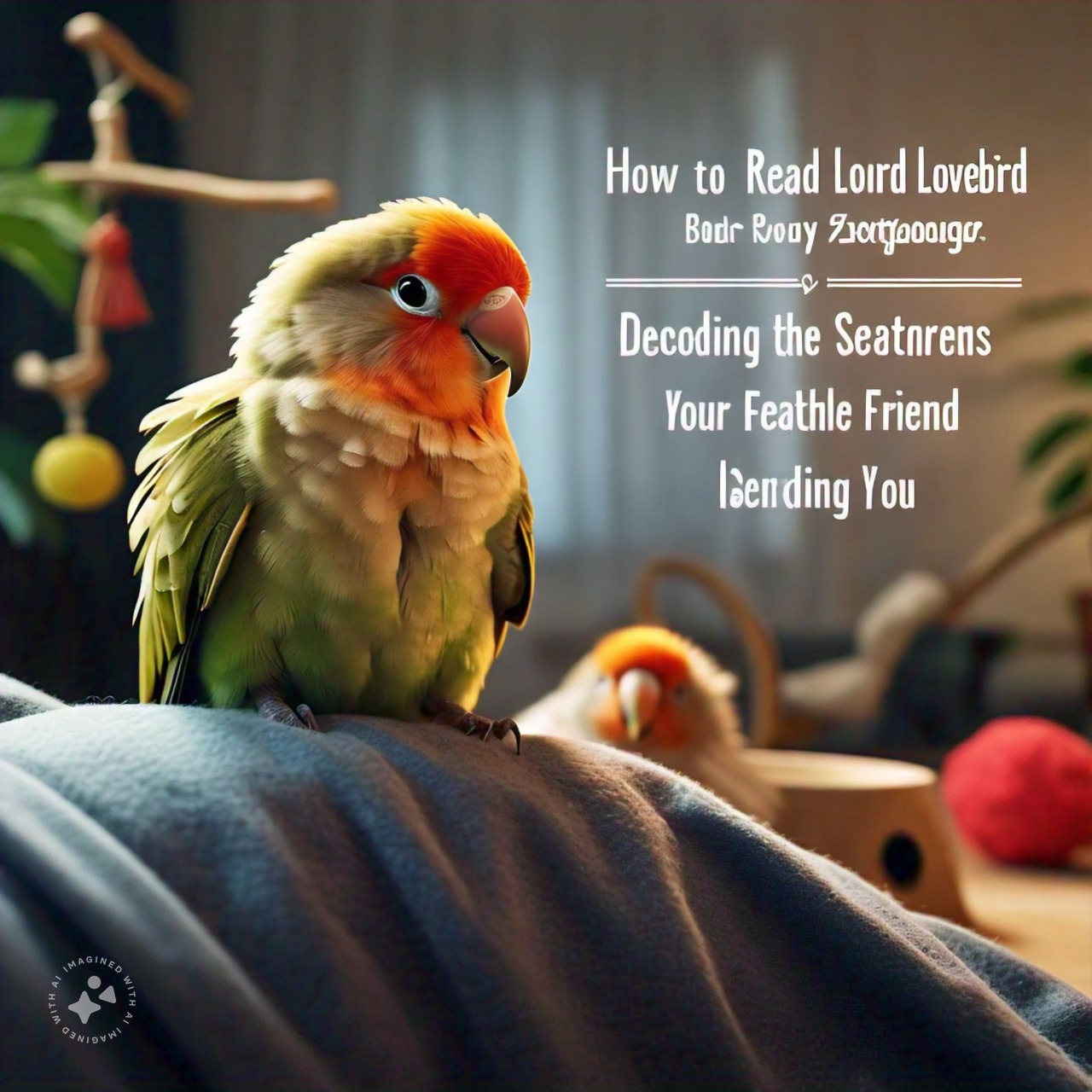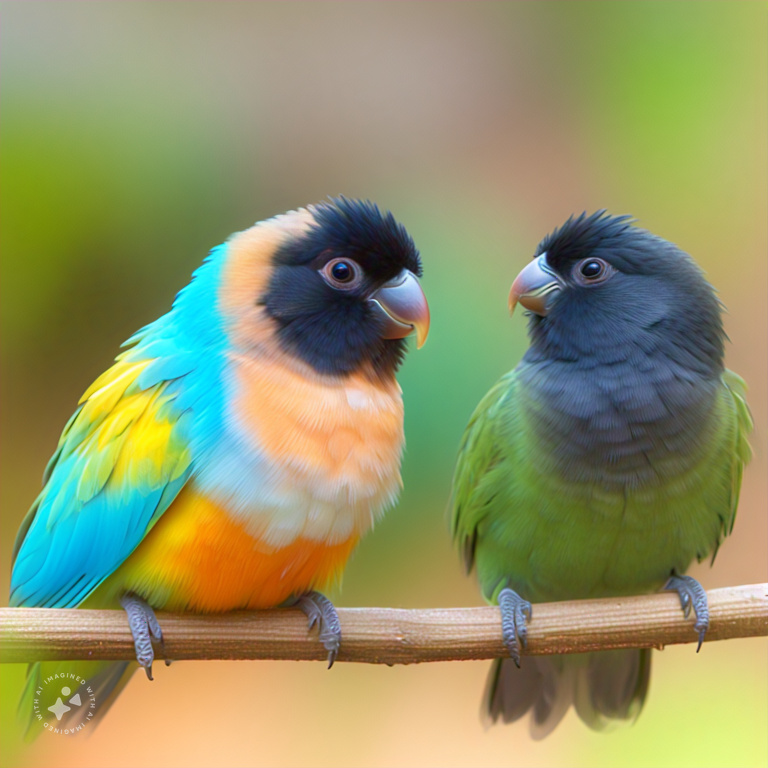The Black-Cheeked Lovebird: Ultimate Care Guide, Personality Insights, and Diet Tips for a Happy, Healthy Pet
The Black-Cheeked Lovebird (Agapornis nigrigenis) is a small yet captivating parrot known for its charming personality and striking appearance. Native to East Africa, these lovebirds have become popular pets due to their vibrant colors, affectionate nature, and engaging behaviors. Whether you’re an experienced bird owner or a first-time pet parent, understanding the unique needs of the Black-Cheeked Lovebird will help ensure they live a healthy, happy life. In this guide, we’ll cover everything you need to know—from their care requirements and temperament to personality traits, housing needs, and diet tips.
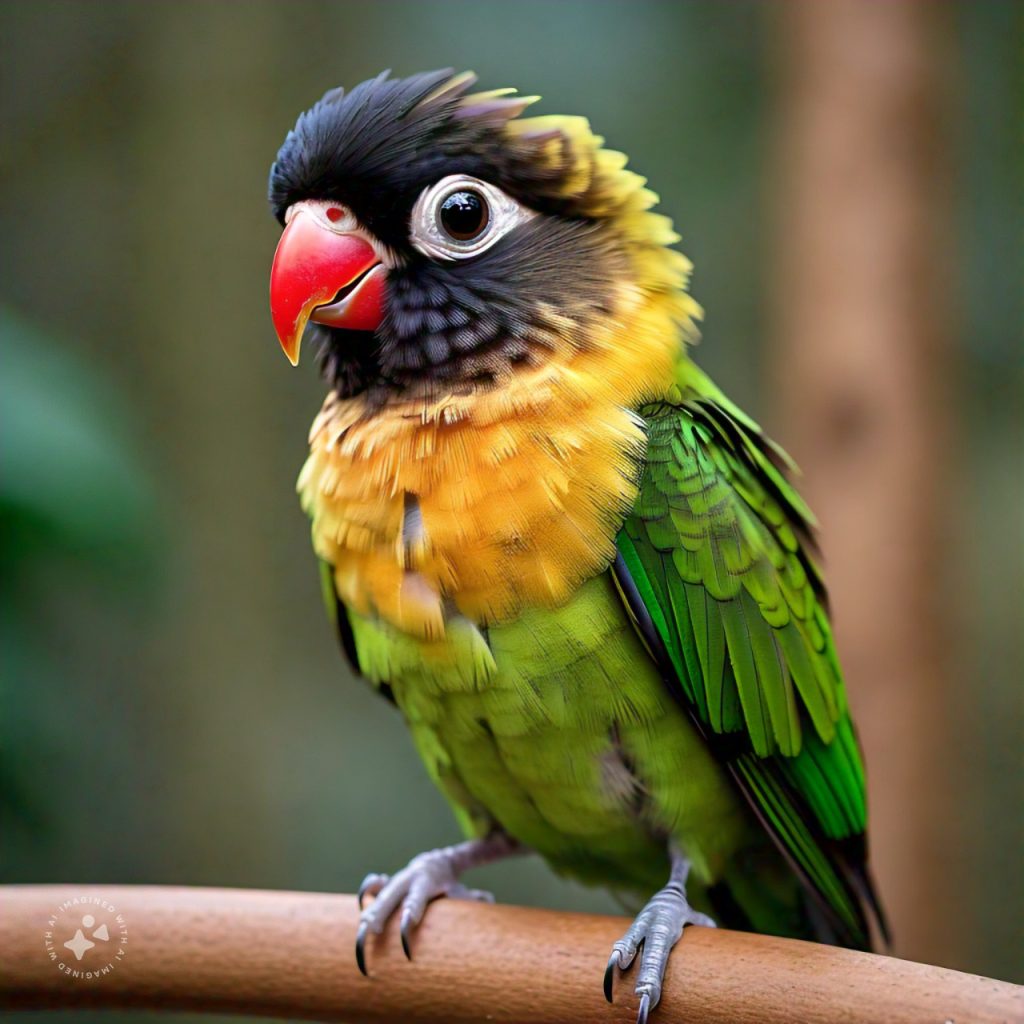
Black-Cheeked Lovebird Care: Essential Tips for a Healthy, Thriving Pet
Caring for a Black-Cheeked Lovebird involves several key considerations to keep your bird happy and healthy. The right care routine will help your pet thrive and avoid common health problems.
Cage Size and Environment
Black-Cheeked Lovebirds are small but highly energetic, so they require plenty of space to fly and play. A spacious cage with horizontal bars is ideal, as it allows them to climb and move around freely. The cage should be large enough for your bird to stretch its wings and exercise without restriction. A minimum size of 24” x 24” x 24” is recommended for one bird. You should also ensure the cage has various perches of different materials (such as wood or rope) and levels to encourage natural movement. Petco’s Bird Care provides more details on selecting the right cage.
Cleanliness
Maintaining a clean environment is crucial for the health of your Black-Cheeked Lovebird. Clean the cage regularly, removing uneaten food, soiled bedding, and waste. It’s also important to clean toys and perches weekly to prevent the build-up of bacteria and mold. Additionally, ensure the bird’s water is fresh at all times. The Spruce Pets offers helpful tips on bird cage maintenance.
Exercise and Mental Stimulation
Mental and physical stimulation is vital for Black-Cheeked Lovebirds. These birds are highly intelligent and require plenty of interaction and enrichment to stay happy. Regular playtime outside the cage, as well as puzzle toys, foraging opportunities, and opportunities to interact with you, will keep their minds sharp and prevent boredom-related behaviors like feather plucking. Learn more about enriching your bird’s life at Bird Channel.
Understanding the Black-Cheeked Lovebird Temperament: What Makes Them Unique
Black-Cheeked Lovebirds have a distinctive temperament that sets them apart from other lovebird species. These birds are known for their bold, curious, and affectionate nature. Despite their small size, they exhibit a big personality that often surprises new owners.
Affectionate and Social
Black-Cheeked Lovebirds are very social birds that enjoy human interaction. They are known to bond closely with their owners, often seeking out attention, cuddles, and companionship. Unlike other species that may prefer more independent behavior, Black-Cheeked Lovebirds thrive in a social environment and can even form strong emotional attachments to their human caregivers. According to Avian Web, lovebirds like these thrive in pairs or groups.
Energetic and Curious
These lovebirds are full of energy and curiosity. They enjoy exploring their environment and will likely fly around in search of new things to investigate. Their inquisitive nature means that they need constant stimulation to stay engaged. However, because of their energetic disposition, they can also be mischievous—chewing on furniture or stealing small objects when bored. Read more about their playful nature on The Spruce Pets.
Territorial Nature
Although friendly, Black-Cheeked Lovebirds can be territorial, especially when it comes to their living space. They may show signs of aggression toward other pets or even new people if they feel their territory is being threatened. This is why early socialization and understanding their boundaries is essential.
Unraveling the Black-Cheeked Lovebird Personality: Playful, Affectionate, and Charming
The Black-Cheeked Lovebird’s personality is one of its most enchanting features. These birds are affectionate and playful, with a zest for life that makes them wonderful companions.
Playfulness
Black-Cheeked Lovebirds love to play and engage in playful activities with their owners. They are often seen hopping, swinging, and playing with toys in their cage. These birds enjoy games like tug-of-war with their owners, and many are known to develop a special attachment to specific toys. Their playful nature makes them entertaining pets to watch, and they will often initiate playtime themselves. For more on stimulating your pet, visit Bird Care Tips.
Affectionate Nature
Black-Cheeked Lovebirds are highly affectionate and love to be around their owners. They are known to show their affection through physical gestures like snuggling, beak preening, and following their owners around. If given enough attention, they will return the affection tenfold, making them ideal for individuals or families who can dedicate time to bonding with their bird.
Vocal Nature
While Black-Cheeked Lovebirds aren’t as loud as some larger parrot species, they can be quite vocal, especially when they are feeling playful or seeking attention. Their calls are typically soft and chirpy, though some may develop a loud screeching noise if they feel neglected or overly stimulated. Training and consistent attention can help manage vocalization habits. You can find more tips on managing bird vocalizations on Bird Talk.
Black-Cheeked Lovebird Housing: Creating the Perfect Space for Your Pet
Creating the right environment is key to keeping your Black-Cheeked Lovebird happy. The ideal housing setup encourages exercise, mental stimulation, and comfort.
Choosing the Right Cage
When selecting a cage for your Black-Cheeked Lovebird, opt for one that provides ample space and plenty of places to perch and climb. The cage should be made of non-toxic materials and designed with safety in mind. Avoid cages with narrow bar spacing that could pose a risk to your bird’s health. The bars should be no more than ½ inch apart to prevent your lovebird from getting its head stuck. Learn more about safe cage options at Birdcage Care.
Cage Placement
The location of your bird’s cage is also important. Choose a place in your home where your bird can interact with family members and get involved in household activities but not be exposed to drafts or extreme temperatures. A quiet, well-lit area away from direct sunlight or heating vents is ideal. The Avian Veterinary Center offers advice on safe cage placement.
Enrichment
To prevent boredom and destructive behaviors, provide a variety of toys and perches in the cage. Rotate toys regularly to keep things exciting. Include items that encourage foraging, like treat puzzles and hidden food. Climbing branches, swings, and ladders will also help keep your bird active and engaged.
Feeding Your Black-Cheeked Lovebird: The Best Diet for Vitality and Longevity
A balanced diet is crucial for maintaining the health of your Black-Cheeked Lovebird. Proper nutrition helps prevent common bird health issues, promotes a strong immune system, and supports their overall well-being.
Base Diet
The core of a Black-Cheeked Lovebird’s diet should consist of a high-quality pellet or seed mix designed for small parrots. Pellets are nutritionally balanced, but a varied diet is important to ensure your bird gets all the essential nutrients.
Fresh Fruits and Vegetables
In addition to pellets, Black-Cheeked Lovebirds enjoy fresh fruits and vegetables. Offer a wide range of options, including leafy greens, carrots, apples, bananas, and berries. Be sure to remove any uneaten fresh foods from the cage after a few hours to prevent spoilage. For more on bird nutrition, visit Petfinder.
Supplements
While a varied diet is essential, consider supplementing your bird’s nutrition with calcium and vitamin D3, especially if they are not getting enough sunlight. Offer cuttlebone or mineral blocks as a source of calcium.
Hydration
Always provide fresh, clean water. Black-Cheeked Lovebirds are particularly sensitive to dirty water, so change it daily and clean the water dish frequently.
Conclusion
The Black-Cheeked Lovebird is an endearing companion known for its playful nature, affectionate personality, and vibrant charm. By understanding their care needs, temperament, and diet, you can provide a fulfilling and joyful life for your feathered friend. Whether you’re a seasoned bird owner or new to pet birds, the Black-Cheeked Lovebird makes a wonderful addition to any home. With proper care and attention, these delightful birds will thrive and bring years of love, laughter, and companionship to your life.


